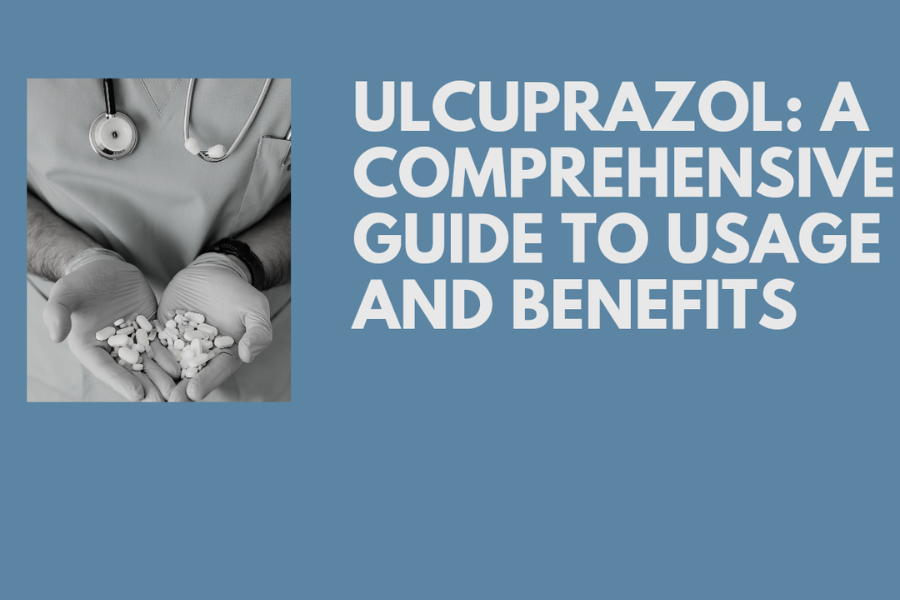Gastroesophageal reflux disease (GERD) affects millions globally, characterized by the uncomfortable and often painful backflow of stomach acid into the esophagus. This reflux can cause persistent heartburn and, if untreated, may lead to serious health complications. The advent of Ulcuprazol marks a significant breakthrough in GERD management, offering a new approach to treatment with its innovative mechanism and potential for effective symptom relief and esophageal healing.
What Is GERD?
GERD occurs when the lower esophageal sphincter (LES), which separates the stomach from the esophagus, becomes weakened or malfunctions. This malfunction allows stomach acid to escape into the esophagus, leading to symptoms such as heartburn, regurgitation, and chest pain. If left untreated, GERD can result in severe complications like esophagitis, Barrett’s esophagus, or even esophageal cancer.
How Ulcuprazol Works

Ulcuprazol represents a major advancement in GERD treatment. Unlike traditional proton pump inhibitors (PPIs) that block acid production in the stomach’s parietal cells, Ulcuprazol takes a novel approach. It irreversibly binds to the proton pump itself, resulting in a prolonged reduction in acid secretion. This method requires a lower dose than conventional PPIs, reducing the risk of side effects such as nutrient malabsorption and increased susceptibility to gastrointestinal infections.
Rapid Symptom Relief
One of Ulcuprazol’s most notable features is its ability to deliver quick relief from GERD symptoms. Patients often experience significant improvement in heartburn, regurgitation, and chest pain shortly after starting treatment. This rapid symptom control enhances patients’ quality of life and reduces the likelihood of esophageal damage due to chronic acid exposure.
Promoting Esophageal Healing
Ulcuprazol also facilitates the healing of damaged esophageal tissue. By effectively managing stomach acid levels, Ulcuprazol helps restore the integrity of the esophageal mucosa, potentially reversing damage caused by persistent acid reflux. This healing capability is crucial for preventing the progression of GERD to more severe conditions.
Safety and Tolerability
Clinical trials have shown that Ulcuprazol has a commendable safety and tolerability profile. Most patients experience few or no side effects, making it a viable option for long-term GERD management. However, patients should consult their healthcare providers to discuss their medical history and any potential drug interactions before starting Ulcuprazol.
Key Considerations for Patients

While Ulcuprazol offers numerous benefits, it’s essential for patients to maintain open communication with their healthcare providers. Discussing individual health needs, possible side effects, and any concerns about the treatment can help ensure optimal outcomes. Additionally, lifestyle changes such as dietary adjustments, weight management, and avoiding trigger foods can further enhance Ulcuprazol’s effectiveness and overall quality of life.
Conclusion
Ulcuprazol is setting a new benchmark in GERD treatment with its innovative approach that combines efficacy, safety, and convenience. Its unique mechanism provides rapid symptom relief and promotes esophageal health, offering a promising solution for those struggling with GERD. However, successful management of GERD also involves a holistic approach, including lifestyle modifications and ongoing communication with healthcare providers.
As the field of gastroenterology evolves, Ulcuprazol stands out as a beacon of progress, representing a significant scientific achievement and a commitment to improving patient outcomes. For those suffering from GERD, Ulcuprazol may be the key to not only symptom relief but also to a path of healing and recovery.
Frequently Asked Questions
What is Ulcuprazol and how does it work?
Ulcuprazol is a medication for GERD that irreversibly binds to the proton pump in stomach cells, reducing acid secretion and alleviating symptoms.
What makes Ulcuprazol different from other GERD medications?
Unlike traditional PPIs, Ulcuprazol provides faster symptom relief with a lower dosage, minimizing the risk of side effects related to excessive acid suppression.
Can Ulcuprazol heal esophageal damage caused by acid reflux?
Yes, Ulcuprazol manages acid levels and helps repair the esophageal mucosa, potentially reversing some of the damage from chronic acid exposure.
Is Ulcuprazol safe for long-term use?
Ulcuprazol has shown a strong safety and tolerability profile in clinical trials, making it suitable for long-term use. Consultation with a healthcare provider is recommended.
How should patients start Ulcuprazol treatment?
Patients should discuss their medical history and any potential drug interactions with their healthcare provider to determine if Ulcuprazol is the right choice for their GERD treatment.
Dive into detailed tech reviews and trends at Crockknot.org.





Leave a Reply